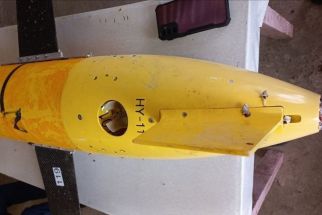US government to hand over second ship to Philippines
WASHINGTON – The US government will hand over a second Coast Guard cutter to the Philippines with the aim of improving the country’s maritime security in light of heightened tension in the South China Sea, a congressional hearing was told.
Republican Rep. Ed Royce told a House of Representatives Foreign Affairs hearing on US-Philippine relations that the congressional review process for transferring the Coast Guard cutter Dallas will be finished this week, and the ship should soon be on its way to Manila. Another aging US cutter, the Hamilton, was transferred to the Philippines last May.
“I am pleased to report that the congressional review process for another ship – Coast Guard cutter Dallas – wraps up this week. It should soon be on its way to Manila,” he added.
The US has sought to boost the Philippines’ ability to maintain its maritime security because of its ally’s concern over assertive Chinese behavior in disputed waters of the South China Sea.
“Aggressive Chinese claims on the South China Sea – or the West Philippine Sea as it is referred to in Manila – are driving the nations of Southeast Asia to seek closer US ties,” Royce said.
At the same time, the US and the Philippines are working to expand their trade and investment relationship.
A legislation is pending in the US House ways and means committee that would restore to the Philippines preferential access to the US market for many clothing items it lost when a global apparel quota system was lifted seven years ago.
Royce admitted the Philippines had been largely ignored in US foreign policy for some time but said things were starting to change.
He pointed out that this was the first congressional hearing focused solely on Phl-US relations in many years.
While the United States has no territorial claims in the region, the top US diplomat for East Asia, Kurt Campbell, reiterated that the US has a national interest in such claims’ peaceful resolution and the freedom of navigation in seas that carry about half the total tonnage of world trade.
“In many ways, we are writing a new chapter in our relationship and turning the page from a legacy of paternalism to a partnership of equals,” he said.
Campbell said the US is considering a “reasonable” Philippine request also to transfer gear stripped from the Hamilton before it was handed over.
The US took the sensors from the ship before it was decommissioned, as well as its communications and electronics equipment, and close-in weapons system, which are used to detect and destroy at short-range incoming anti-ship missiles and enemy aircraft.
The ship, commissioned in 1967, was transferred under a program that offers “excess defense articles” to foreign partners in support of US national security and foreign policy objectives.
Last year, the US transferred the Coast Guard cutter Hamilton to the Philippines. Now renamed BPR Gregorio del Pilar, the cutter serves as the flagship of the Philippine Navy.
“In the coming months, we hope to transfer a second Coast Guard cutter to the Philippines, as well as support other improvements in its surveillance and detection capabilities,” Campbell said.
He said multiple overlapping claims to disputed territories in the South China Sea have led to heightened tension among claimant states even as the US takes no position on the competing sovereignty claims.
“Our goal, which we share with ASEAN (Association of Southeast Asian Nations), is to support a collaborative diplomatic process by all claimants to resolve their disputes without coercion,” Campbell said.
He said the Philippines and the US were constantly looking to enhance their security relationship to better address the range of regional security challenges of interest to both.
“We are making sure that our collective defense capabilities and communications infrastructure are operationally and materially capable of deterring provocation from the full spectrum of state and non-state actors,” Campbell said.
Campbell described Philippine President Benigno Aquino as a person of “rare integrity” and lauded his efforts to fight corruption.
He said if Aquino and his administration remained committed to rooting out corruption, “I firmly believe the Philippines can continue to improve its global standing, its ranking in the various indices of corruption, and its chances of attracting job-creating investment by American and international companies.”
Campbell stressed the importance of stronger economic ties, as he spoke in gushing terms about the bilateral relationship with the Philippines, one of five US treaty allies in Asia.
“There’s no country in Asia that’s more welcoming to the United States, more supportive of a stronger relationship and more on our side, rooting for us every step of the way,” he said.
Rep. Dana Rohrabacher, an arch critic of China, praised the joint US-Philippine efforts to fight Islamic militants in the southern Philippines. For the past decade, hundreds of US forces have helped equip and train Filipino forces there.
Rohrabacher described an airstrike last week that killed a leader of the al-Qaeda-linked Abu Sayyaf group, for which the US shared intelligence, as a victory against radical Islam.
“We need to stand as aggressively and as solidly with the Philippine government in confronting an aggressive, arrogant, expansionist China as we have in standing against radical Islam,” he said.
Welcome
The Philippine military welcomed the support given by US lawmakers to the Obama administration’s plan to boost its ties with the Philippines.
Armed Forces of the Philippines (AFP) spokesman Col. Arnulfo Burgos Jr. said the backing of US lawmakers would help boost the AFP’s capability to fulfill its mission.
“This is a welcome development for the AFP who continues to strive to be more efficient and effective in fulfilling its constitutional mandate of protecting the people and upholding the sovereignty and integrity of its national territory,” he said. – With AP, Alexis Romero
- Latest
- Trending






























